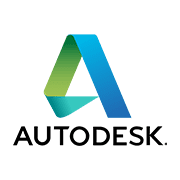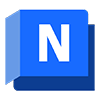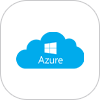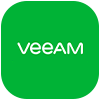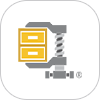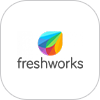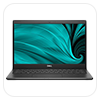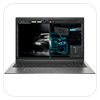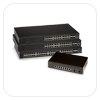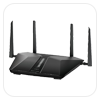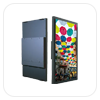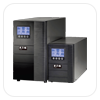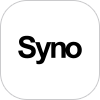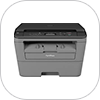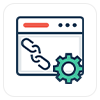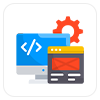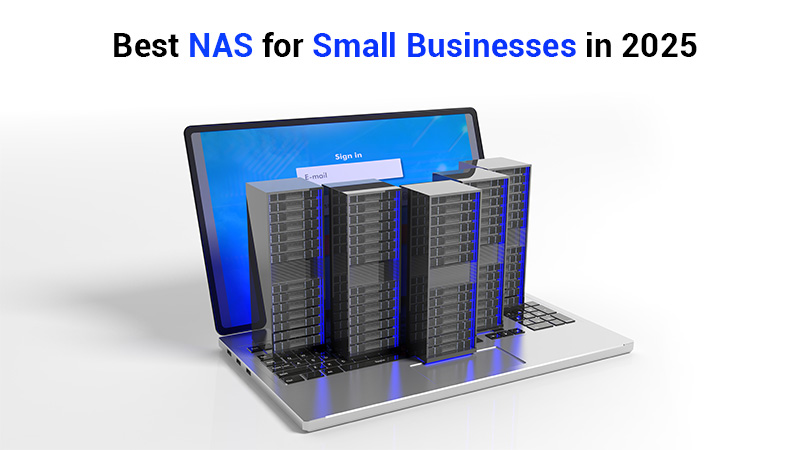
The significance of Network Attached Storage (NAS) devices for small enterprises in 2025 cannot be overstated. These provide centralized storage, very powerful data protection, easy file sharing, and a variety of applications that can prominently enhance productivity while easing operations. Choosing the right one involves detailed consideration of particular requirements and budget constraints, as well as future needs. This comprehensive guide will take you through the best NAS options offered for small businesses in 2025, with in-depth reviews and points to consider for your final choice.
Why Small Businesses Need a NAS in 2025?
There is no denying that businesses, mainly small ones, generate as well as need tons of data. Therefore, there are many advantages that a network-attached storage (NAS) offers over direct-attached storage or cloud-only storage.
Centralized Data Storage: A NAS is a centralized place where all business data can be stored, making it easy to manage and eliminating the need to store data on separate computers and external hard drives. This single-location storage makes it easy to access, organize, and back up data.
Advanced Data Protection: Along with RAID settings for redundancy and fault tolerance, other integrated features of NAS appliances provide for software backup and cloud backup services, which can save users in a disaster or hardware failure.
Enhance Collaboration: Using NAS, several users can view and share files simultaneously, making it easier to work together, especially for companies that have remote or hybrid teams.
Scalability: NAS storage systems are known to be fairly scalable, meaning they might help organizations to grow their storage capacity as their data needs grow simply by adding smaller or larger hard drives or expansion units.
Cost-Effectiveness: Upfront installation in some NAS might seem expensive. However, over time, it can actually be a better deal than continuously paying for cloud storage subscriptions, especially if you have a large volume of data to store.
Versatile Applications: Simple file storage is just one of the things modern NAS can do; they also serve media, perform surveillance, host private clouds, and virtualize setups, thus creating a lot of added value to small businesses.
Remote Access: The majority of NAS solutions provide secure remote access to files for employees needing vital information from any location through the internet.
Points To Consider While Selecting A NAS For Your Small Business In 2025
Before choosing the model and looking at the details, it is important to look at the factors that can affect your NAS choice:
Storage Capabilities: Determine what your data storage needs are in the present and for future growth. Consider what types of files you will be storing (files, pictures, movies, or databases) and how frequently you will be adding new ones. Choose a NAS that gives enough room within an acceptable number of bays for your present as well as future needs.
Number of Bays: The number of drive bays shows how many hard drives you can install. More bays will mean having more storage, but also more opportunities to configure any of the drives for RAID purposes for enhanced redundancy as well as data performance. You may inquire about a 2-bay, 4-bay, or larger arrays, such as 5-bay drive systems.
Performance: There are large files to be processed, virtual machines to be run, and many users simultaneously accessing the NAS. Therefore, these models often have powerful processors, lots of RAM, as well as fast network connections (like 2.5GbE or 10GbE). They may also support SSD caching, which can enhance performance for data that is frequently used.
RAID Configuration: RAID is really important for safeguarding data. There are different levels of RAID that provide different balances between speed and data protection. Some examples of the most common RAID levels used by small businesses include RAID 1 (mirroring), RAID 5 (parity), RAID 6 (dual parity), and RAID 10 (striping and mirroring). Choose from among the NAS that includes the RAID levels that match the way you want to protect your data.
Connectivity: The NAS should have all the required connections, like Ethernet ports for fast network speed, USB ports for backing up externally or attaching other devices.
Operating System and User Interface: The features, ease of use, and application options of the NAS depend on its operating system (OS). Synology DSM and QNAP QTS are two widely used OSes that have a lot of features, with user-friendly interfaces and a vast app library. One should examine their level of technical skill and select an OS that they will find convenient to work with.
Features and Applications: Look at the applications and add-ons that come pre-installed. Consider factors such as backup software, media server functionality (Plex support), virtual machine support (Docker, Virtual Machines), surveillance station support, cloud integration, and collaboration features. Select a NAS with features that best suit your business requirements.
Scalability: As your SMB expands, your storage will continue to grow as well. NAS has scalability options in the form of larger drives, expansion units, or support for higher-capacity drives.
Budget: NAS devices vary broadly in prices according to the features and specifications. Set your budget as a company and decide on the most critical features. Consider the total cost of ownership, NAS, and the cost incurred for the hard drives.
Security Features: Look for NAS systems with strong-in-level security features like firewall management, vigorous encryption (AES 256-bit), and two-factor authentication, as well as safeguards such as anti-virus tools to fully secure your data against any unauthorized access from theft or cyber threats.
Technical Support and Warranty: Consider the reliability of the brand and if they have good customer service and assistance.
Top NAS for Small Businesses in 2025: Reviews
From the current trends and expert reviews, as well as small-business-relevant features, here are some of the Ultimate Picks for NAS 2025:
-
Synology DiskStation DS1522+
Key Features:
- 5 Drive Bays (up to 15 expandable using two DX517 units)
- AMD Ryzen R1600 Processor
- 8GB DDR4 RAM (expandable to 32GB)
- 4x 1GbE LAN Ports (upgradeable to 10GbE)
- Runs on Synology DSM 7.3
Review:
The Synology DS1522+ is the best option for small businesses because of its combination of performance, scalability, and ease of use. The completely built-in 5 drive bays make it perfect for growing storage needs, with the ability to expand to a total of 15 bays with DX517 units. It has an AMD Ryzen R1600 processor and expandable RAM to make sure you can perform multitasking, use virtual machines, or handle large data workloads.
The DSM 7.3 operating system comes with features for intuitive interfaces and access to a broad ecosystem of apps for backup, file sharing, and security. Built-in 1GbE ports ensure a solid network performance, while an upgrade to 10GbE is possible for future-proof purposes.
Thus, although it might not be at the cheapest price, making an investment in a DS1522+ makes sense for small businesses that have plans to expand.
-
QNAP TS-233
Key Features:
- 2 Drive Bays
- Realtek RTD1296 Quad-Core 1.4 GHz Processor
- 2GB RAM
- 1x Gigabit Ethernet Port
- QTS 5 Operating System
Review:
The QNAP TS-233 is a wonderful starter NAS for small businesses with simple storage requirements and a tighter budget. It offers excellent value by providing the features available in this 2-bay NAS category for small file sharing, data backup, and streaming.
Having QTS 5 OS, it has a variety of apps and tools. QTS runs better than it looks, and once set up, it becomes easy to figure out.
Though it lacks 2.5GbE connectivity or even 10GbE, the QNAP TS-233 offers great value for its price. With a combination of price and performance, this is a practical solution for small businesses, new to the NAS landscape.
-
Asustor Lockerstor 6 Gen2 (AS6706T)
Key Features:
- 6 Drive Bays
- Intel Celeron N5105 Quad-Core 2.0 GHz Processor (Burst up to 2.9 GHz)
- 4GB DDR4 RAM (Expandable up to 16GB)
- Dual 2.5GbE Ports
- ADM 4.2 Operating System
Review:
For small businesses that require heavy-duty performance for video editing, virtualization, or managing large databases, the Asustor Lockerstor 6 Gen2 is a splendid choice. Six drive bays define generous storage capacity; with the Intel Celeron N5105 processor and the ability to transfer fast via dual 2.5GbE ports, you can say that the system is a good multitasker.
The ADM 4.2 OS from Asustor is intuitive and getting better with every version; it, therefore, provides an array of apps and tools for productivity and backup purposes. This means that the dual 2.5GbE ports give it the edge compared to standard Gigabit Ethernet, which is more suited for bandwidth-heavy workloads.
To sum up, the Lockerstor 6 Gen2 is powerful, highly scalable, and fast, putting it in the upper tier of NAS devices meant for performance-centric setups.
-
TerraMaster F5-422
Key Features:
- 5 Bays
- Intel Celeron J3455 Quad-Core 1.5 GHz Processor (Burst up to 2.3 GHz)
- 8GB RAM (Expandable to 16GB)
- 2x Gigabit Ethernet Ports
- 1x 10GbE Port
- TOS 4.2 OS
Review:
The TerraMaster F5-422 offers an attractive built-in 10GbE port against most other models and, therefore, is the perfect NAS option for small companies where the most important need is to have ultra-fast speeds in the network, especially when dealing with large file transfers or collaborative editing workflows. With 5 bays, storage potential is solid, and the Intel Celeron J3455 makes performance quite enough to meet routine business needs.
While TOS 4.2 is TerraMaster’s current operating system, it has been evolving and has limited features with a bit of technical installation compared with Synology’s DSM or QNAP’s QTS.
-
Synology BeeStation
Key Features:
- Two Drive Bays
- Intuitive Setup
- Basic NAS Features
Review:
Many other models from Synology are often highly featured and complex; however, the BeeStation is best for small offices that have low fuss and need ease of use. It is clearly designed around a single thought—backing up and simply sharing files—and is best suited for hardware-savvy users who would not mind skipping the technical part. It offers core NAS features without the high learning curve, making it an excellent solution for teams looking for an easier and more efficient storage option.
Additional NAS Alternatives for Small Enterprises in 2025
QNAP TS-464: The flexible 4-bay NAS with dual 2.5GbE ports is an entry-level device for small businesses wanting a balance between performance and features.
Asustor AS5402T: A small 2-bay NAS designed for 2.5GbE connectivity-perfect for power users or small businesses looking for fast performance while taking up very little space.
TerraMaster F4-424 Pro: A solid midrange 4-bay NAS with dual 2.5GbE ports and M.2 NVMe SSD caching slots, great for speeding up performance in data-intensive settings.
OWC Jupiter Mini: A high-performance 4-bay NAS with 10GbE incorporated for the use of creative professionals: simple to use and connect with good network capability for intense workflows.
Conclusion
The choice of an ideal NAS for a small business in 2025 includes a lot of factors, like data handling, interaction, and actual work. Once this information is gathered, it will be much easier to select a NAS that supports your purpose. The ones highlighted in this guide are some of the best ones, with various features and capabilities to serve the different needs of a small business. Always remember to read extensive reviews and compare specs before making your final choice!


















